THANK YOU
TO ALL OF OUR SUPPORTERS, VOLUNTEERS, + ATTENDEES, SEE YOU IN MEDELLÍN IN 2022!Congratulations to the organizers of WCSJ2019 and WCSJ2023!
Student Coverage
-
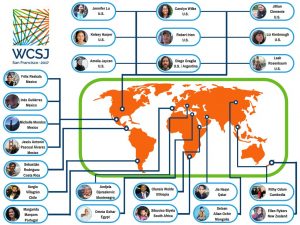
Student Journalists Produce 52 Reports from WCSJ2017
Rob IrionStudent science writers from around the world have created a set of 52 stories from the World Conference of Science Journalists 2017, spanning most of the meeting’s sessions and creating a valuable reference archive for journalists in the U.S. and abroad. The reports, along with bios of the authors, are online at the WCSJ2017 Student... Read More -
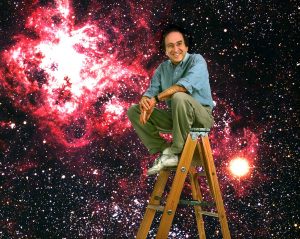
Will Cosmologists Save the World? Approaches from Scientific Training Could Shape Public Debates
Amelia JaycenBy Amelia Jaycen SAN FRANCISCO—Saul Perlmutter, a Nobel Prize–winning astrophysicist and cosmologist at Lawrence Berkeley National Laboratory, has spent a lot of his time ascertaining how quickly the universe is expanding. But he is also concerned with some down-to-earth issues, like the state of human interactions. As he watched public discussions unfold in the last... Read More -
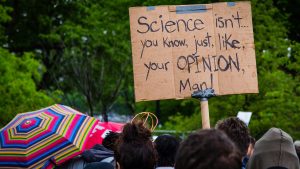
Fact-Checking In the Age of “Fake News”: A Q&A With Brooke Borel and Alex Kasprak
Carolyn WilkeBy Carolyn M. Wilke SAN FRANCISCO—Is fact-checking the future of journalism? That question, at once disturbing for our society and promising for the increased role science journalists might play in combating fake news, drove a panel discussion among four experts on 30 October at the World Conference of Science Journalists 2017. The panelists, all experienced... Read More -
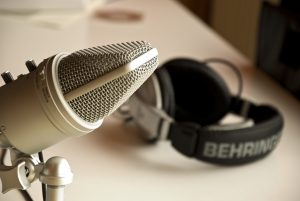
Science Podcasts: The Fun, the Challenges, and Tips from the Pros
Ellen RykersSAN FRANCISCO—Science podcasts are more popular than ever. Producing them takes time, technical savvy, and a deep passion to engage listeners with material that is both informative and fun. How does one start a science podcast and build a dedicated audience? Those topics drew an enthusiastic crowd on 27 October at the World Conference of... Read More -
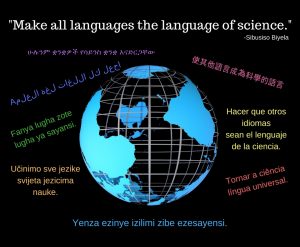
How “Decolonizing” Science Can Make It Better
Liz KimbroughBy Liz Kimbrough SAN FRANCISCO—When South African student journalist Sibusiso Biyela sat down to write about the launch of the MeerKAT telescope in both English and Zulu, he thought it would be simple. The English version rolled out smoothly. But when he began to translate into Zulu, his native language, he found he would have... Read More -

Whoever Is Free from Conflicts of Interest, Let Them Throw the First Stone!
Jesús Antonio Pascual ÁlvarezBy Jesús Antonio Pascual Álvarez SAN FRANCISCO—There is a simple truth in the news business: Audiences want to consume verified information from credible media, and journalists strive to gain that trust. But things are often not that simple, because there always seems to exist a third party intent on bending the message in favor of... Read More -

Climate Change and California: A State Where Scientists Have the Ears of Policymakers
Sergio VillagránBy Sergio Villagrán BERKELEY, California—On 13 November, a letter signed by more than 15,000 researchers, titled “World Scientists’ Warning to Humanity: A Second Notice,” appeared in the journal BioScience. Coming 25 years after the first such warning from the scientific community, the letter notes how little we have done to stop the negative environmental trends... Read More -
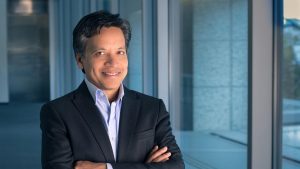
Sorting Through the Stem Cell Hype: A Conversation with Deepak Srivastava
Leah RosenbaumBy Leah Rosenbaum SAN FRANCISCO—Every day, it seems, reporters cover a new stem cell treatment. But how are journalists supposed to distinguish the real stem cell treatments from the fake? While there have been bona fide advances in the past two decades, stem cells also have become associated with shoddy clinics and treatments that may... Read More -
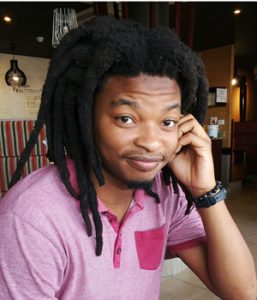
How to Decolonize (or Decolonise) Science Communication
Diego GragliaSibusiso Biyela, one of this year’s student travel fellows, brought a South African perspective to a panel on the decolonization of science 27 October at the World Conference of Science Journalists. ‘We were taught that science has a western origin’ @AstroSibs at #WCSJ2017 #DecolonizeScience pic.twitter.com/NnVPCuO8kL — Oscar Miyamoto (@MiyamOtOscar) October 27, 2017 The panel also... Read More -
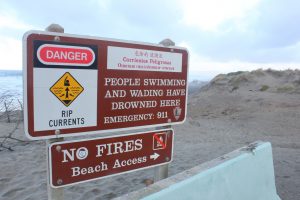
Why Coastal Sea Rise and Eroding Beaches Are Bad News for San Francisco
Jennifer LuText and photos by Jennifer Lu San Francisco’s Ocean Beach is famous for its surfable waves. But it’s the sand beneath the bay that grabs Patrick Barnard’s attention. The underwater sand dunes, called sand waves, are some of the largest in the world. They rise up to 33 feet high and span up to two football... Read More -

Redefining Philanthropy: Private Donors Underwrite Much of Modern Research
Rithy OdomBy Rithy Odom SAN FRANCISCO—The world of philanthropy has undergone profound changes in recent years. The scientific enterprise is at the core of this evolution: Private entities and wealthy individuals are playing a more defining role in many fields of research. Many scientists have welcomed these infusions. But they also raise a host of questions... Read More
